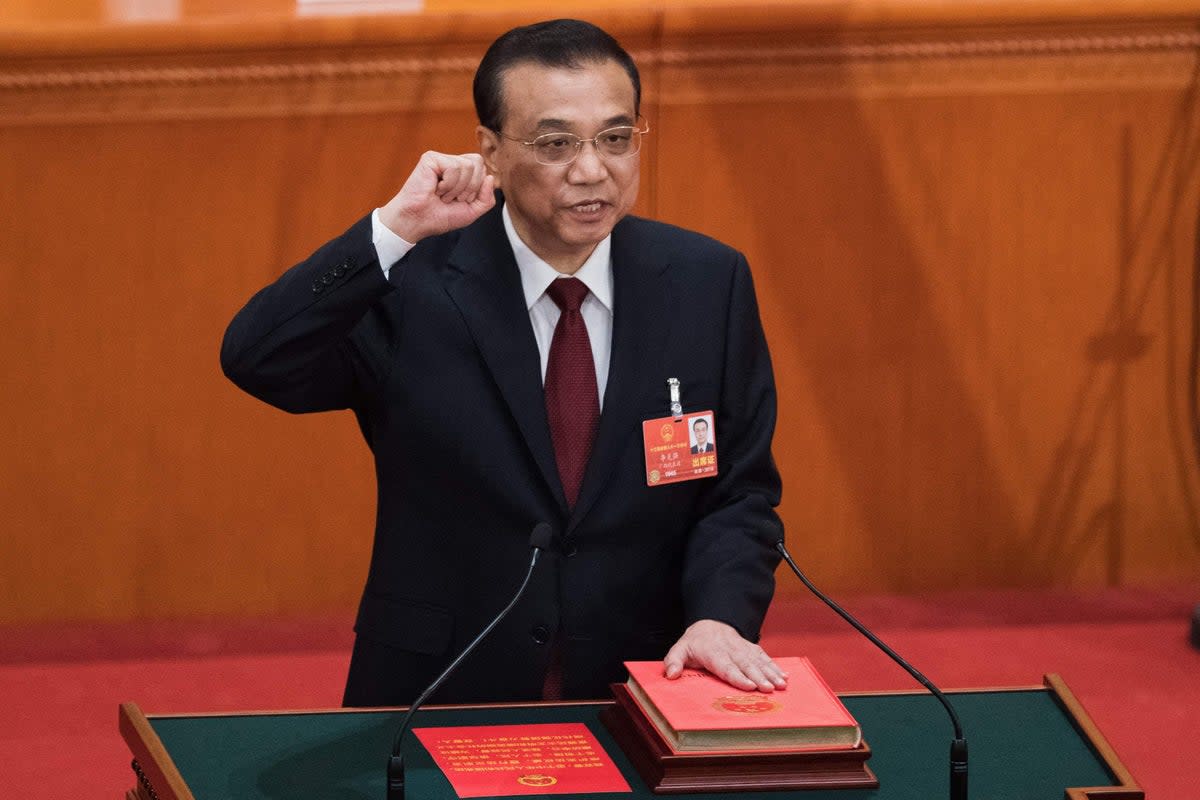Li Keqiang: Former Chinese premier dies of heart attack

Former Chinese premier Li Keqiang died on Friday after suffering a heart attack at the age of 68.
Li passed away in Shanghai despite "all-out efforts" to revive him, state broadcaster CCTV reported.
He was the second-most powerful person in the Chinese Communist Party and the head of China's cabinet under president Xi Jinping for a decade until stepping down in March last year.
"No matter how the international winds and clouds change, China will unswervingly expand its opening up," Li said at his last public appearance in a press conference in March.
"The Yangtze River and the Yellow River will not flow backwards," he said.
The bureaucrat was sidelined in recent years by Mr Xi, who tightened his own grip on power and steered the world's second-largest economy in a more statist direction.
Li served two terms as a premier from March 2013 to 2023 and was the second-ranked member of the Communist Party from 2012 to 2022.
Li was dropped from the Standing Committee at a party congress last year despite being two years below the informal retirement age of 70. The same day, Mr Xi awarded himself a third five-year term as party leader, discarding a tradition under which his predecessors stepped down after 10 years.
Li was an English-speaking economist and considered a contender to succeed then-Communist Party leader Hu Jintao in 2013 but was passed over in favour of Mr Xi.
He was seen as a supporter of a more liberal market economy but his ambitions were curtailed by Mr Xi's preference for more state control.
In a 2010 speech, Li acknowledged challenges including too much reliance on investment to drive economic growth, weak consumer spending and a wealth gap between prosperous eastern cities and the poor countryside.
The former premier inspired the unofficial “Li Keqiang Index”, created by The Economist to measure the nation’s economic growth using three indicators. Li preferred to use high-frequency indicators, such as rail cargo, electricity consumption and bank loans, to figure out how well the country's economy fared.
Li, in his first annual policy address in 2014, received praise for promising to pursue market-oriented reform, cut government waste, clean up air pollution and root out pervasive corruption that was undermining public faith in the ruling party.
However, Mr Xi took away Li’s decision-making powers on economic matters by appointing himself to head a party commission overseeing reform.
The ex-premier sparked debate on poverty and income inequality in 2020, saying 600 million people in China earned less than the equivalent of $140 per month.
Adam Ni, an independent China political analyst and author, described Li as “a premier who stood powerless as China took a sharp turn away from reform and opening”.
Born in Anhui province in eastern China, Li was sent to the countryside to work as a manual labourer during China’s Cultural Revolution.
While studying law at the prestigious Peking University, Li befriended ardent pro-democracy advocates, some of whom would become outright challengers to party control.
After graduation, he joined the Communist Party’s Youth League, then a reformist-tinged ladder to higher office.
He rose in the Youth League while completing a master’s degree in law and then an economics doctorate under professor Li Yining, a well-known advocate of market reforms.
His reputation was tainted by his administration’s handling of an Aids epidemic, which stemmed from a state-sponsored blood donation programme while he was party boss in Henan.
He also served as party chief of Liaoning, a rustbelt province striving to attract investment and reinvent itself as a modern industrial heartland.
Additional reporting by agencies.
